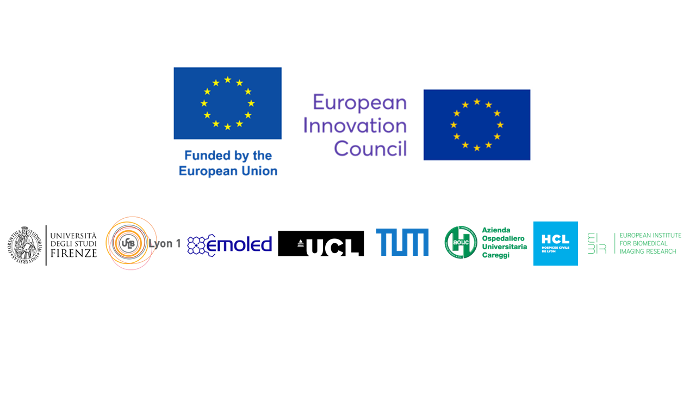
The EU-funded HyperProbe project has marked the conclusion of its inaugural year with significant progress towards revolutionizing neurosurgery through advanced functional-guided neuronavigational imaging.
Year One Achievements:
In the past year, the HyperProbe consortium, coordinated and led by the University of Florence, has made remarkable advances in the design and development of the HyperProbe1 system. This high-performance, versatile, laboratory HSI setup for investigating novel biomarkers for glioma detection and optimisation of hyperspectral parameters has shown promising preliminary results for the clinical translation of its future prototypes. The preliminary testing has allowed the Consortium to study the areas in need for further optimisation for the final HyperProbe device. Another achievement in the first year of the project was the development of a computation tool able to simulate light diffusion through a digital brain incorporating realistic instrument specifications, develop by UCL.
These significant advancements in the project’s first year will help the Consortium advance further and the Consortium will build on this accumulated knowledge to construct together the final device, HyperProbe2, ready for clinical study.
Outlook for Year Two:
As the HyperProbe project enters its second year, the consortium is ready for even greater accomplishments. The focus will be on refining the HyperProbe system based on insights gained during the initial phases. Anticipated milestones for the upcoming year include:
- Continue the preliminary testing and characterisation of HyperProbe1
- Develop the software tools for deep learning-based reconstruction of optical images and quantitative parameters maps.
- The development of Automatic image-processing pipelines for registration of intraoperative and preoperative optical imaging modalities.
The HyperProbe project remains committed to its goal of transforming brain surgery and improving patient outcomes. Through continued dedication, collaboration, and innovation, the consortium aims to bring this cutting-edge technology to the forefront of neurosurgical practice.
“The first year in the development of HyperProbe has provided very promising initial results towards unlocking and exploiting the incredible potential of hyperspectral imaging to impact neuronavigation in current surgical practice, and we are looking forward to continue successfully for the upcoming next steps“ – Francesco S. Pavone (UNIFI)
Background
To achieve their ambitious goal, the HyperProbe consortium brings together researchers, engineers and physicists in the field of optical imaging and medical device development, computer scientists, artificial intelligence experts, neurologists, and neurosurgeons from eight academic institutions and industry partners from across Europe: Universitá degli studi di Firenze, IT, Emoled, IT, Technische Universität München, DE, Université Lyon 1 Claude Bernard, FR, Centre National de la Recherche Scientifique, FR, Azienda Ospedaliera Universitaria di Careggi, IT, European Institute for Biomedical Imaging Research, AT, Hospices Civils de Lyon, FR, University College London, UK. The project will run from October 2022 to September 2027.
EU-funding
The HyperProbe project receives funding from the European Union’s Horizon Europe research and innovation programme under grant agreement No 101071040.The UK participant (University College London) in the Horizon Europe Project ‘HyperProbe’ is supported by UKRI grant numbers 10048387.
Disclaimer
Funded by the European Union. Views and opinions expressed are however those of the author(s) only and do not necessarily reflect those of the European Union or the European Innovation Council and SMEs Executive Agency (EISMEA). Neither the European Union nor the granting authority can be held responsible for them.










